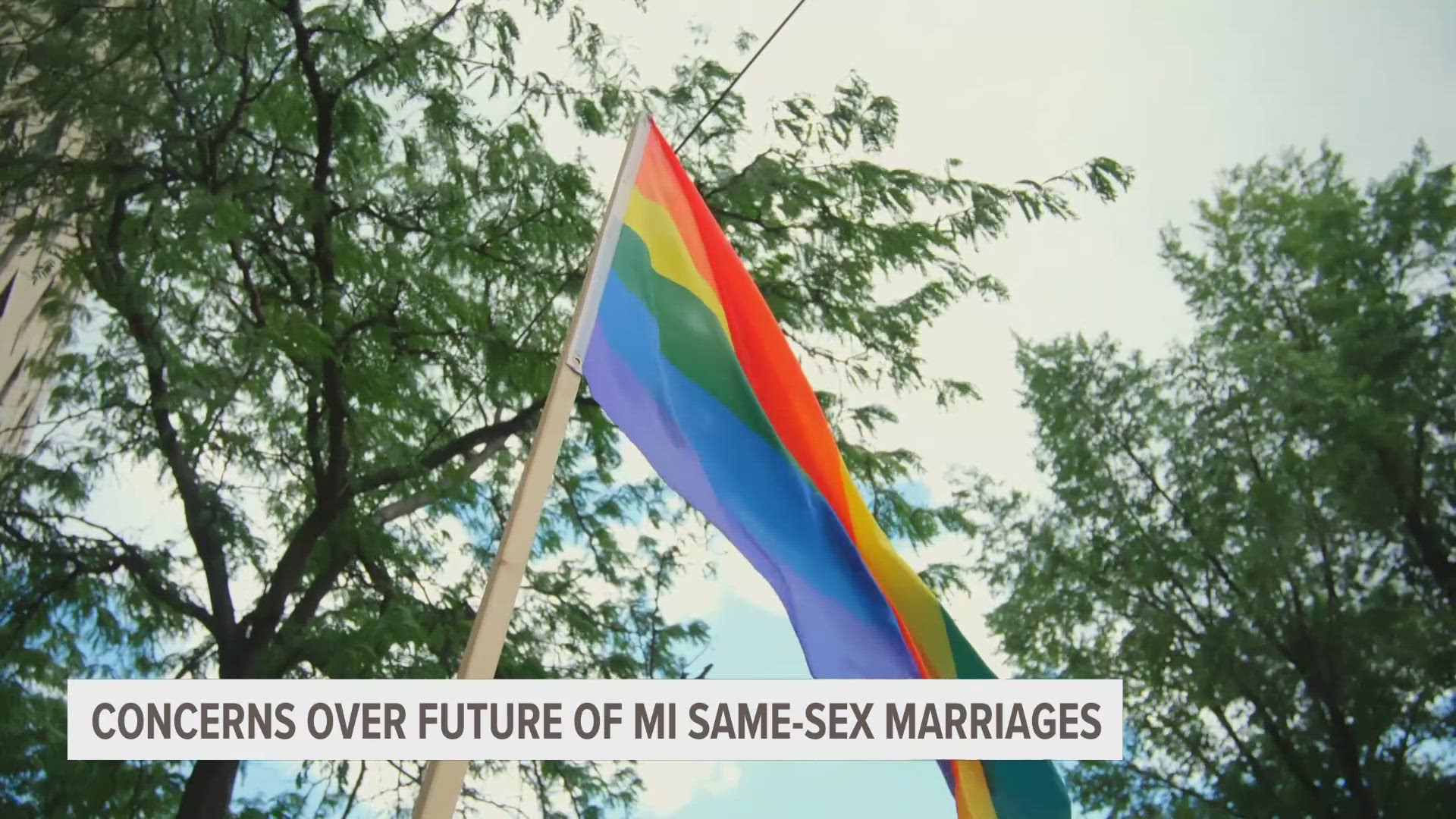GRAND RAPIDS, Mich. — The return of President-Elect Donald Trump to the White House has been a cause for celebration for many.
"I will fight for you, for your family and your future every single day," Trump vowed to supporters in Florida after clearing his projected path back to the White House last week. "I will be fighting for you with every breath in my body."
But for others, including many in Michigan's LGBTQ community, the future is a reason for deep concern.
The LGBTQ-oriented suicide prevention organization The Trevor Project reported a roughly 700% increase in contacts to its crisis services the day after Election Day.
Such a statistic could likely be derived from a multitude of reasons, including for many vulnerable members of the transgender community.
For others still, another concern arises: the continuance of the nationwide legal recognition of same-sex marriages.
"I am hearing a lot of concerns from folks in the LGBTQ community, and I think they're right to be concerned," State Rep. Jason Morgan (D-Ann Arbor) told 13 ON YOUR SIDE.
Morgan, who's been married to his husband for just over a year, introduced a resolution to the Michigan House of Representatives two summers ago that would ask the voters of the state whether to repeal its now-dormant ban on same-sex marriage.
"A lot of folks don't realize that, while the Supreme Court in 2015 in the case of Obergefell v. Hodges legalized same sex marriage nationally, Michigan has had a ban on our constitutional books since 2004," Morgan explained.
But why now?
Following the overturning of Roe v. Wade, some have felt, with the current makeup of the Supreme Court and potentially more socially conservative-leaning justices Trump may appoint in a second term, their right to marry may be next.
"It's a very strange time in Michigan and in our country where future generations may not have the same rights and protections that we have, we have fought so hard for today," Morgan said.
As Roe had stood on similar grounds of due process legal interpretation as Obergefell, Justice Clarence Thomas in a concurring opinion signaled support for revisiting that case among others.
The concerns led to the bipartisan passage of the Respect for Marriage Act later that year, which now requires that, should the nationwide right be overturned, states must legally recognize those marriages performed in states and times where it is legal.
For some, they believed the push went too far unnecessarily.
"While this bill does not move the needle on same-sex marriage, this legislation will raise serious issues for religious liberty," said Sen. John Cornyn (R-Texas) during a debate on the bill in 2022.
But for many like Morgan, it's a core backstop as they work for what they feel is further progress.
"[The RFMA] is critically important, because that does protect my marriage and many others who are already married in our state," Morgan said. "But it would seem a pretty surreal experience if I could be married to my partner, my husband, but somebody in a younger generation would no longer have that same right."
But to get a resolution like Morgan's to a statewide vote, such would require a two-thirds majority support from both the State House and the State Senate.
Even as Morgan conceded this to be a "really tough proposition," he signaled what he felt was hope in repealing the language and safeguarding the right.
Pointing to another avenue for state constitutional change - a citizen-led signature petition to place a proposal on the ballot, reminiscent of what abortion access advocates organized in 2022 - Morgan said public support today dwarfs what would have been capable 20 years ago.
"People genuinely believe that everyone should have the right to marry who they love," Morgan said. "But that's also an expensive and time-consuming proposition for advocates to go through. So, I think those conversations will happen between now and the end of the year in the legislature, and then more publicly with folks to see if there's the movement and the momentum to put something on the ballot in a couple of years."

